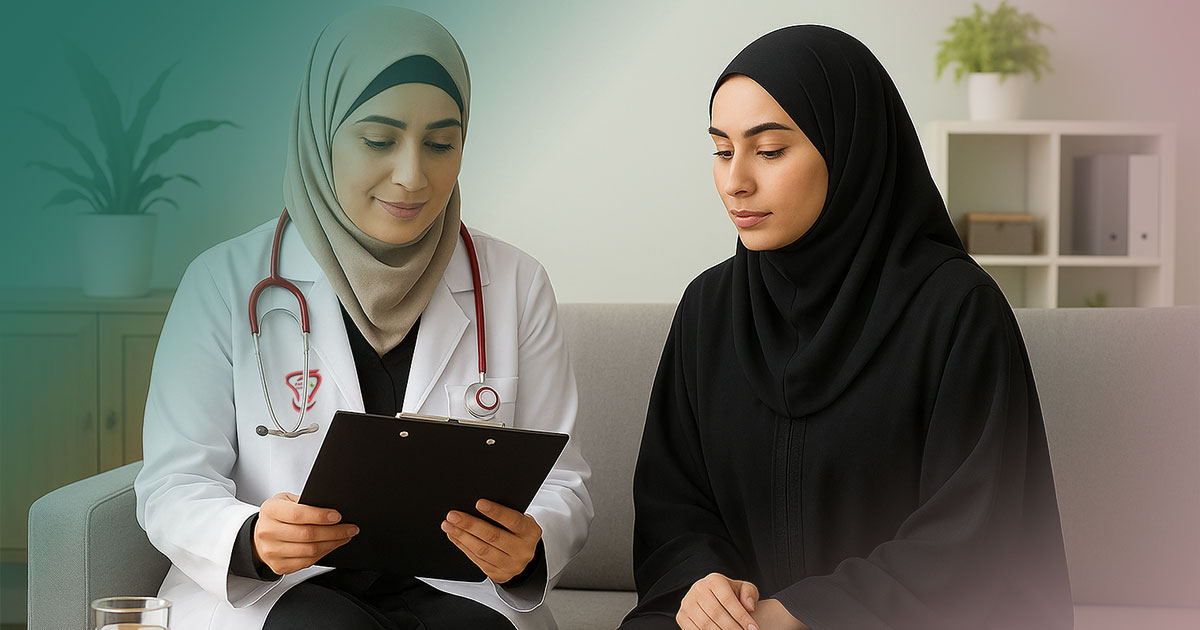
Obstetrics & Gynaecology
29 May, 2025
Essential Women’s Health Screenings: Timing & Importance at Al-Farabi Clinics
Routine women’s health screenings are not just standard procedures—they are crucial steps for early disease detection and ensuring a healthy life. In this article, we’ll explore the most important women’s health exams, their recommended schedules, why they matter, and why Al-Farabi Clinics is the right place to get them—along with answers to your most frequently asked questions.
Why Are Regular Women’s Health Checkups Important?
Routine screenings help in:
- Early detection of diseases such as breast cancer and cervical cancer before they become advanced
- Monitoring hormonal changes that affect fertility and overall health
- Diagnosing urinary or reproductive tract infections that may cause complications if untreated
- Assessing pregnancy health for expecting mothers or those planning to conceive
Essential Screenings & Recommended Timelines
1. Cervical Cancer Screening (Pap Smear)
- When: Every 3 years starting at age 21, or annually if risk factors are present (e.g., family history)
- Why: Detects abnormal cells that may develop into cervical cancer
2. Breast Examination (Mammogram + Self-Check)
- When: Every 2 years starting at age 40, or annually if risk factors exist
- Why: Early detection of breast tumors or abnormalities
3. Hormonal & Fertility Tests
- When: If experiencing symptoms such as irregular periods, difficulty conceiving, or menopause-related signs
4. STD Screening
- When: Annually or if experiencing unusual pelvic pain
- Why: Helps detect conditions such as ovarian cysts, fibroids, or uterine infections
Why Choose Al-Farabi for Women’s Screenings?
- Specialized Doctors: Led by a team of expert obstetricians and gynecologists
- Advanced Equipment: Fast and accurate results using state-of-the-art diagnostic tools like ultrasound
- Privacy & Comfort: Clinics are fully equipped to ensure your ease and confidentiality.
Conclusion:
Your Health Is Your Most Valuable Asset!
At Al-Farabi Clinics, we offer comprehensive and precise women’s screenings so you can feel confident about your health—and get early treatment if needed.
#Al Farabi Clinics
#Women’s Examinations KSA
#Saudi Women’s Health
#Early Detection
#Saudi Women’s Wellness
#Breast Cancer
#Cervical Cancer
#Women’s Care
#Gynecology
#Saudi Regular Follow-up
#Gynecological Exam
#Cervical Smear Test
Contact Us
Related Blogs
Your Most Important Questions – Answered!
When should I start women’s health screenings?
Are the tests painful?
Do these tests require preparation?
What if my results are abnormal?
Share your thoughts here
Official working hours
Saturday to Thursday
From 8 am to 12 pm
Friday From 4 pm to 12pm
All Rights Reserved for Farabi Clinics 2026
VAT No: 310149582700003 - Reg No: 1010466760

